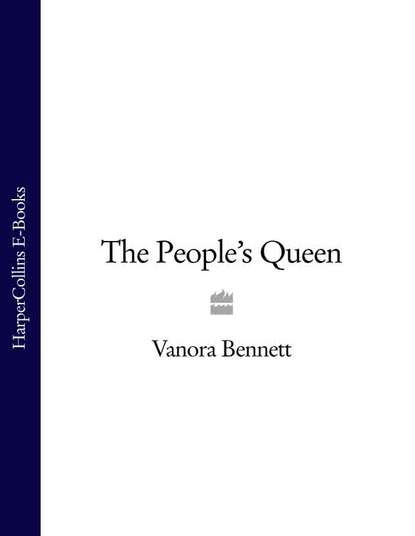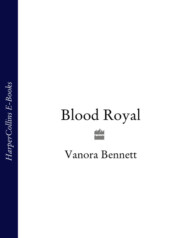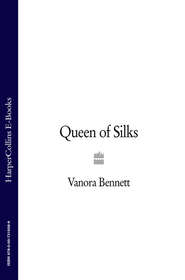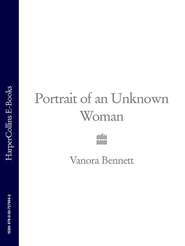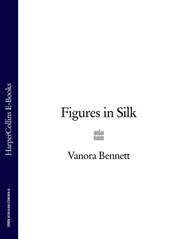По всем вопросам обращайтесь на: info@litportal.ru
(©) 2003-2024.
✖
The People’s Queen
Настройки чтения
Размер шрифта
Высота строк
Поля
Maybe it’s an instinct of gratitude that makes Chaucer glance around to find Alice Perrers. Maybe he half wants to bow his thanks to her again for helping him make friends with these men so easily. Whatever the reason, he does look around for her. He finds her standing not far away, talking quietly to Lord Latimer, and to Lyons, the florid Flemish merchant. And Chaucer forgets bowing and displaying gratitude. He’s too aware of the way they stop what they’re saying to listen in to what Brembre and his friends are talking about. There’s something a little too furtive in the way they all look as they listen. Then they start their own quieter conversation again, just the three of them. Alice says to Lyons, quietly, hardly moving her lips, as if she doesn’t want to be noticed speaking, ‘He’d be ready for twice fifteen thousand, at a better rate, too, if you only gave him your promise. I’m telling you.’ Her eyes are fixed on Lyons’. Behind her, Latimer’s also nodding towards the Fleming. He obviously agrees. He obviously also wants to persuade Lyons to do whatever it is that Alice wants him to do. Lyons looks quickly from Alice Perrers to the chamberlain and back again. He’s thinking. Then he also nods. There’s something secret and satisfied on his face when he’s done.
Alice’s remark itself makes no sense to Chaucer. But the quick, guilty look Lyons gives Chaucer, once Alice has moved off to the next little group of men and the next conversation, makes the comptroller feel as if he’s somehow been hoodwinked. He can’t imagine how, though; and perhaps it’s just the wine, colouring his imagination too rich.
Still, the moment leaves him feeling uneasy. He doesn’t like not understanding.
Philippa doesn’t stay. As soon as the last guest has bowed and made his exit, Philippa stands up too.
She doesn’t want to discuss the dinner. She just says, very politely, that she’s expected back at the Savoy tonight. She can make the boat trip before curfew if she hurries.
‘But the children. They could stay,’ Chaucer mumbles disconsolately. He hasn’t even seen them yet. They would have been too young for the dinner. But he’s assumed they’re here – sleeping, perhaps, in the bedchamber? Or reading? Or walking around London, waiting for the business meeting to be over before the family reunion?
‘They’re not here,’ Philippa replies calmly. ‘They’ve gone down to Sheen early. There was a hunting party they wanted to join.’
He hasn’t thought enough, Chaucer realises, crestfallen. He’s assumed too much. He should have guessed they weren’t here.
Chaucer subsides into defeated silence. He submits when she comes to him and pecks him on the top of his slightly balding head before slipping out. He only remembers to stumble out his thanks to her for coming just in time, before the door shuts. He should be grateful, he knows. Philippa’s pragmatic enough to have realised it’s important to show a united front to the Londoners, who’ll want to see that the marital proprieties are observed in the Chaucer household.
She’s done what’s expected of her.
There’s no reason for him to feel sad, he tells himself, even if she’s going, and even if he hasn’t seen the children. She has her work. They have their lives. This is how things are done in the courtly world. Perhaps it’s only being back among merchants, today, and remembering his own childhood, brought up closer to his parents than any courtier’s son could dream of, that’s making him chafe…
If only the carts weren’t rolling quite so loudly through the gate under his feet. If only he hadn’t drunk that third cup of wine. Or was it the fourth?
He’s slumped at the table, finishing off what’s in the bottom of the cup, listening to the servants behind the door, banging and talking as they clear up the trays and plates, with the sense of anticlimax and disappointment gathering strength inside, as the shadows thicken, when there’s a knock.
He’s astonished to see Alice’s face around the door.
She smiles brilliantly, and the shadows retreat. ‘I thought I’d drop by for five minutes while my men are picking up the platters out there. I’d ask you for supper at my house…but you’ve probably had enough already, haven’t you?’ She twinkles at him. Hastily, he straightens up. ‘You’d rather sleep, I expect…’
He’s on his feet before he knows it. ‘The kindness,’ he hears himself chirrup, excitedly, sounding far too eager. ‘The thought-fulness…finding the time to bring so much…your generosity…I can’t begin to tell you how overwhelmed I was…’
She doesn’t say anything. She looks straight into his eyes, almost tenderly. She shakes her head. After a moment, she says, ‘I’ve been thinking about you…About how strange it must have felt, for you, today – to be coming back to where you grew up.’ She takes his hand, not flirtatiously, more like a sister. ‘After everything else you’ve seen in your life.’ Her voice trails away, inviting confidences. ‘I could hardly imagine doing that, myself.’
A wave of emotion sweeps him. No one else has understood.
He’s felt so alone with those thoughts, until now. Suddenly he longs to pour out all the troubles in his heart. ‘A beautiful day,’ he begins gratefully; ‘I have so much to thank you for. Then: ‘I’m only sorry my children weren’t here to see it.’ He stops. It would have been an even greater pleasure, he’s been going to say, if Philippa hadn’t kept the children away. But he’s not quite a fool, even in his cups. He shouldn’t be sharing his troubles. ‘They went hunting instead,’ he adds hastily, choking off the self-pitying confidence he’s nearly shared, and trying to sound proud of his children’s courtly friendships. ‘At Sheen, Philippa said.’
It must be the memories of his own father that being in London today has awakened – that sudden recollection of a world in which a son’s place is at his father’s shoulder, learning his business, for all those formative years – that’s making him feel this sadness, almost grief, for his own absent children. Or it’s the drink. At any rate, Alice is giving him the casually concerned look of someone who doesn’t understand the pain he feels. He doesn’t think she has children of her own. For a moment he feels almost envious of the freedom from hurt that must represent; she can’t be expected to feel the twisting in his heart. He knows he’s talking too much.
Mildly, she says, ‘And there was me thinking you were going to tell me what it was like travelling in Italy.’ She laughs. He feels she’s expecting more. But he doesn’t know what.
‘I’m sorry,’ he says. ‘Must be a little bit drunk.’ She doesn’t seem to mind. Her silence goes on being warm and inviting. It’s a relief to have been able to confess something so innocuous.
After a pause, she says, ‘Oh, well, who isn’t, after a splendid dinner like yours? I felt a little tipsy myself.’
Still fuzzily, Chaucer now remembers that he’s asked quite a lot of people in this room, since his earlier exchange with Alice by the window, about her husbands. There’s been a quiet, nudging, whiskery sort of conspiracy about the answers he’s got, and more than one jovial ‘oh ho, my boy!’ But he senses that no one else really knows, either, what Alice was up to before she became the Queen’s demoiselle and the King fell in love with her. ‘She’s packed a lot into her years in this vale of tears, that one,’ someone said knowingly. ‘They say she was very friendly with Froissart, the Hainaulter,’ Lyons said, ‘and, or so I heard, with the knight who went to Ireland, what’s-his-name, Windsor.’ Lyons tried to wink at Chaucer but Chaucer shifted his eyes. ‘There was Champagne, the baker, I heard. When she was just a girl. And Perrers, obviously,’ someone else said. ‘After Champagne. Wasn’t she married to Perrers?’ Nods all round, though nods that didn’t seem to be backed by much precise knowledge as to which Perrers Alice might have lived with. One man opined, hazily, ‘Jankyn Perrers, was it? The Fleming?’ And, at the same time, another offered, ‘Sir Richard Perrers? Hertfordshire?’ All merchants know it’s a mistake to admit ignorance. Rumours and guesses – even foolish ones – are better than no knowledge at all. But still, this conversation soon petered out. The lack of real interest makes Chaucer see that, even to these men, who like to measure and map and mine every potentially useful relationship and contact, it hardly matters what Alice was before she was touched by the King’s grace, or whatever has made her the powerhouse she’s become. It’s her vivaciousness, and her current web of friendships, and her astonishing Midas touch, that interests them. Now, not the past.
But all those questions come rushing back into Chaucer’s mind when he sees her. Suddenly brave, he thinks: No harm in asking.
‘So…’ he says, feeling his tongue thick in his mouth, ‘how did you come to meet and marry Master Champagne, if you grew up in Essex?’
Country gentry families, in Essex as elsewhere, don’t, on the whole, marry their daughters into City trade families, unless they’ve fallen on hard times and happened upon a temptingly rich merchant suitor already buying land in the countryside near their home. What little Chaucer knows of Master Champagne the baker doesn’t seem to fit. If Master Champagne was indeed the first husband.
Then he blushes. He’s given away the fact that he’s been prying into her past all afternoon now, hasn’t he? ‘If that isn’t an impertinent question,’ he adds hastily. But he isn’t too mortified. With Alice Perrers, he’s beginning to feel, he can ask, at least. She won’t hold a spirit of enquiry against him.
He’s right. She doesn’t look offended. She even hesitates, as if she might confide in him. There are memories in her eyes. For the first time, Chaucer sees the beauty of her.
But all she ends up saying, as Chaucer goes on looking expectantly into her eyes, is, ‘Oh…I hardly remember. A day on the river…cygnets and ducklings…liverymen notching their beaks…a lot of laughing…spring in the air, I expect. But you know how it is. It seems so important at the time, but then you forget…’
Her voice grows lighter and more playful with every phrase. The moment has passed. She isn’t going to tell him anything.
He shrugs. There’s something delicious in this conversation, even without the kind of confidences he’s been fishing for. So he doesn’t much care.
But she isn’t just teasing him. He can tell from the little furrow that now appears on her forehead – which, strangely enough, makes her look very young for a moment, not old – that she’s thinking something serious, too.
‘You know, Chaucer,’ she adds (by now he likes the way she just calls him ‘Chaucer’), ‘I think people worry far too much about where they’re from. It’s not the past that counts, or where you’re from. It’s where you’re going, and what you do when you get there. That’s what matters.’
Chaucer thinks this over, and finds that the honesty in this matter-of-fact statement of her ambition pleases him more than he might have expected it to. This clarity of hers must be what has so impressed the merchants. He thinks: I’ll do what they do in future and forget her past. No point asking foolish questions.
There’s another pause. The red begins to bleed out of the shadows.
She’s staring out again at the greying fields. Without turning towards him, with her eyes fixed out there somewhere, she adds, with that near-wistfulness she’s had earlier, that he took for the beginning of sincerity, ‘Anyway, you can marry all you want…but there’s only one person you ever truly love, isn’t there?’
Chaucer wonders, but can’t for the life of him tell, whether she means the King.
Chaucer goes to sleep in a mostly happy blur of impressions and memories, the majority of them concerning his new friendship with Alice Perrers. But when he wakes up before dawn with a pounding headache, full of worries again, what he remembers most clearly is that quiet, strange moment between Alice Perrers, and Lyons, and Latimer: the three of them muttering together, glancing quickly at each other, egging each other on to something he couldn’t grasp.
Even when he thinks back on it now, in the scratchy predawn, tossing in his bed, reaching for the water jug, he can’t imagine what that conversation can have been about.
FIVE (#ulink_6b1038ae-6d24-57e7-b01a-f2552984bfdd)
‘Why was Richard Lyons with us yesterday?’ Chaucer asks through his headache. ‘When he’s a vintner?’
Walworth, who until July, when his mayoral job begins, will represent the City at the wool trade, looks up from his desk across the hall. Chaucer sees the fishmonger’s lean jaw clench, and the beautiful peaceful eyes go flinty, so you can see that, despite the angel’s golden hair, he’d be a bad man to cross.
Then the merchant’s eyes clear and his wry smile comes, transforming the fighter back into a charmer. ‘Ah,’ Walworth says, easily. ‘You mean you don’t know why Lyons needed to meet the wool comptroller, since his business has nothing to do with wool?’
The clerks at each man’s desk also look up. Chaucer’s one puts down his quill. There are faint, expectant smiles on both pink young faces. Chaucer can practically see them craning forward.
Chaucer’s feeling a little wary now. He never expected such a strong reaction. But he nods.
‘As it happens, we’d all like to know the answer to that question, dear boy,’ Walworth says, nodding to the inquisitive clerks to go back to their columns of figures. They bow their heads. Then Walworth smiles a little wider, till his flawlessly ivory teeth glint in the sun. ‘Just why is Master Lyons so interested in the wool business, when, as you say, he’s a vintner?’
Walworth does tell Chaucer what he thinks of the Flemish vintner, but only later, at midday, outside the Customs House, and out of the clerks’ earshot. He links arms with Chaucer and walks him up Water Lane to Thames Street. He has to lean down and sideways to reach, and to murmur in, Chaucer’s ear. He’s tall and wiry, and as strong as a knight in the lists.
‘We are very glad,’ he begins, with what to Chaucer’s ear sounds unnecessary formality, ‘all of us, that it is you who have been chosen as comptroller – a man we in the City can talk to without reserve. Someone we can trust.’
Chaucer bows, out of courtesy and pleasure combined. Perhaps he’s just being flattered. But his own instinct, likewise, is to trust the three merchants he’s trying not to think of as Uncle Will, Uncle Nichol, and Uncle John. Still, he’s puzzled. The subtext of everything he’s been told in the past few weeks of briefings is that his job in London will be to stop these three men expanding their interests beyond what is proper, and taking for themselves what is rightfully the King’s. Yet, in this deep, comforting, familiar voice, he already hears a note of appeal. as if William Walworth and his friends fear that their own rightful interests are being eaten into.





